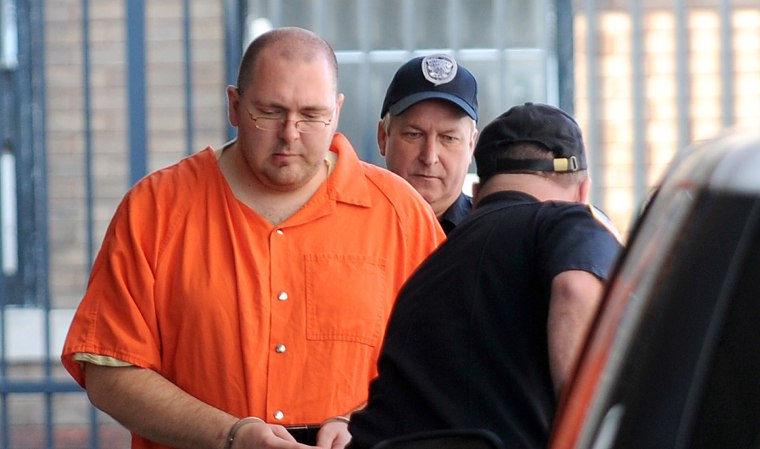A Kentucky man who killed three students and injured five more in a school shooting 25 years ago was denied parole Monday.
The Kentucky Parole Board voted to have Michael Carneal serve out his life sentence. The ruling means he will never be considered for parole again.
Carneal was a 14-year-old freshman in 1997 when he fired a stolen pistol at a before-school prayer group in the lobby of Heath High School, near Paducah. He was sentenced to life with the opportunity for parole after 25 years, the maximum allowed at the time for someone his age.
In one of the few interviews he has given since then, he told the Courier Journal of Louisville in 2002: “I perceived my life as miserable. Nobody loved me and nobody cared.”
Carneal said then that he was sorry for what he had done and acknowledged that he was only thinking of himself at the time, not the people he would hurt and kill. He said that there was no simple answer for why he lashed out but that he was suffering from delusions and paranoia at the time. He said therapy and medication he received in prison had stabilized his mental health. “It seems weird to say, but I am not really a violent person,” he said.
His parole hearing began Sept. 19 with testimony from those injured in the shooting and close relatives of those who were killed. On Tuesday, Carneal made his case for release from the Kentucky State Reformatory in La Grange.
The Courier Journal reported that Carneal may have eliminated any chance of parole when he testified last week that he still hears voices in his head — like the ones he said told him to open fire on Dec. 1, 1997.
Although he said he can resist the voices now, a parole board member said that his prognosis was poor and that he was experiencing “paranoid thoughts with violent imagery,” the newspaper reported.
He said Tuesday that he had heard voices two days earlier telling him to jump down a stairway.
Carneal was believed to be one of the first school shooters to come up for parole; the rest died in their attacks or were condemned to life, the Courier Journal reported.
His father, John Carneal, had pleaded for his release, citing his age at the time of the crime. And he and his wife offered to take him into their home and ensure he continued to get mental health treatment, according to the newspaper.
Michael Carneal was diagnosed with paranoid schizophrenia and takes three medications for it, the newspaper reported. But his victims and their families testified that there is no guarantee he would continue to take medications after he was released.
All but one testified against paroling him, the Courier Journal reported.
According to the newspaper, asked whether he deserved parole, Carneal said, “I don’t know: Sometimes I think I deserve to be killed.” But he said he would “like to do something good for society — even if it is just to listen people.”
Killed in the shooting were Nicole Hadley, 14, Jessica James, 17, and Kayce Steger, 15. The injured include Missy Jenkins Smith, who was paralyzed and uses a wheelchair. She met with Carneal in prison in 2007 and had a long conversation with him. He apologized to her, and she said she had forgiven him.
“A lot of people think that exonerates him from consequences, but I don’t think so,” she said, adding that she is opposes releasing him. She worries that he isn’t equipped to handle life outside prison and could still harm others. She also doesn’t think it would be right for him to walk free when the people he injured are still suffering.
Commonwealth’s Attorney Daniel Boaz, the lead prosecutor for the area that includes Paducah, wrote a letter to the Kentucky Parole Board on Sept. 9 opposing Carneal’s release.
“I experienced and witnessed the immediate effects of Michael Carneal’s actions on December 1, 1997 and have dealt with the effects of his actions since then,” Boaz wrote.
The families of the children who were killed suffered losses “too vast to be put into words,” he wrote. While incarcerating Carneal for the rest of his life “may seem like a harsh penalty, it is only a pittance in comparison to what these families suffer.”
